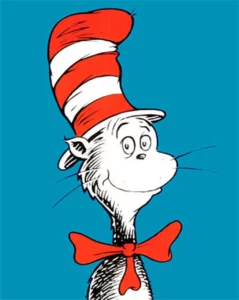Calling all bookworms (and potential bookworms)… March is National Reading Month! During this annual observation, the National Education Association aims to encourage reading, especially among children and young adults – with and without disabilities. Inclusion in books matters because literature, both fiction and nonfiction, has an impact on young readers’ minds. It can help shape the perception of themselves, others and the world around them. To empower readers of all abilities, explore disability books and inclusive learning materials throughout National Reading Month and beyond.
Inclusive Chapters

Kicking off National Reading Month, Read Across America Week is celebrated from March 2 to March 6 – beginning on the birthday of the popular children’s book author, “Dr. Seuss.”
Born on March 2, 1904, Theodor Seuss Geisel wrote and illustrated more than 60 books under his infamous pen name. This beloved collection includes “The Cat in the Hat,” “How the Grinch Stole Christmas,” “One Fish Two Fish Red Fish Blue Fish,” among other popular titles. In 1984, he received a Pulitzer Prize for his contribution to the education of children and their families. Then, in 1998, the National Education Association choose his birthday as the basis for the Read Across America initiative.
School and community organizations nationwide embrace both National Reading Month and Reading Across American Week to promote literacy and creativity among little learners. It’s more important than ever to include disability books in selections because, according to the U.S. Census Bureau, disability rates among American children are higher than ever. According to data reported in 2019, over three million children in the U.S. have a disability. Plus, people with disabilities constitute the nation’s largest minority group. So maybe offering up a greater selection of disability books will help boost inclusion!
Disability Books to Explore
Want to introduce disability books to your children? Reading Across America compiled an inclusive list of disability books that, it says, offers readers the opportunity to “explore a wide range of disability experiences, as well as enjoy fabulous stories that focus on a disabled character but not their disability.” Click this link to view the suggested list of disability books.
Do you have a favorite book that features an inclusive message? Share with AmeriDisability on Facebook, Twitter and Instagram.







